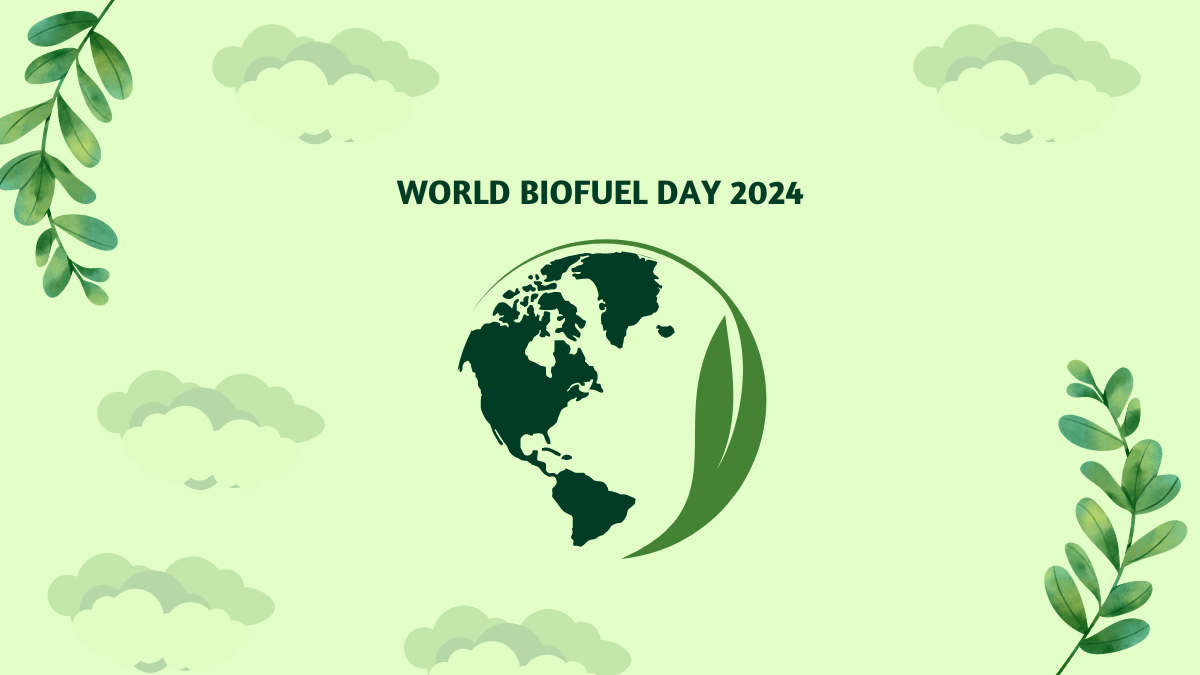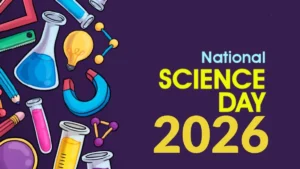World Biofuel Day, observed annually on August 10th, commemorates the groundbreaking achievement of German engineer Sir Rudolf Diesel, who successfully operated an engine using peanut oil on August 9, 1893. This day serves as a global platform to highlight the significance of biofuels as a sustainable energy source and their potential in addressing climate change and reducing dependence on fossil fuels.
Celebrating Innovation: ICGEB’s Special Event
The International Centre for Genetic Engineering and Biotechnology (ICGEB) marked World Biofuel Day 2024 with a special event at its New Delhi campus. This gathering brought together students, researchers, and experts to explore:
- Advancements in biofuels
- Carbon capture technologies
- Opportunities in advanced biofuels
- Contributions to global and national Net Zero CO2 emission targets
The event emphasized the crucial role of biofuels in shaping a sustainable energy future and addressing pressing environmental concerns.
Understanding Biofuels: Nature’s Renewable Energy
Biofuels are derived from biomass – organic matter from plants or animal waste. Unlike finite fossil fuels, biofuels are considered a renewable energy source. The two most common types of biofuels are:
1. Ethanol
Ethanol is produced through the fermentation of crop residues, primarily corn and sugarcane. It is commonly blended with petroleum to create cleaner-burning fuel mixtures. The most prevalent blend, Ethanol-10 (E10), consists of 10% ethanol and 90% gasoline.
2. Biodiesel
Biodiesel is manufactured from used cooking oil, yellow grease, or animal fats. The production process involves burning these substances with alcohol in the presence of a catalyst, resulting in biodiesel fuel.
The Importance of Biofuels: A Multi-Faceted Solution
Biofuels offer numerous benefits that address environmental, economic, and energy security challenges:
Environmental Benefits
- Mitigate greenhouse gas emissions
- Reduce reliance on finite fossil fuel resources
- Provide opportunities for improved waste management
Energy Security
As the world’s third-largest consumer of crude oil, India heavily depends on imports to meet over 85% of its energy needs. Biofuels present a viable solution to enhance energy security and reduce this dependence.
Economic Advantages
- Decrease reliance on imported oil, positively impacting India’s trade balance
- Boost farm incomes through increased demand for biofuel crops
- Address challenges related to food grain and sugar overproduction
Government Initiatives: Paving the Way for a Biofuel Future
The Indian government has implemented several policies and initiatives to promote biofuel adoption:
1. National Policy on Biofuel (2018)
This comprehensive policy aims to:
- Reduce import dependency
- Improve farmers’ remuneration
- Address environmental concerns
- Promote better waste management practices
Key components include:
- Ethanol Blending Programme (EPB)
- Production of second-generation ethanol
- Increased production of fuel additives under “Make in India”
- Research and development in feedstock
- Financial incentives to achieve policy goals
In May 2022, the policy was amended to advance the 20% blending target from 2030 to 2025-26, demonstrating India’s commitment to accelerating biofuel adoption.
2. Global Biofuels Alliance (GBA)
Launched by Prime Minister Narendra Modi in 2023, the GBA is a multi-stakeholder alliance including:
- Governments
- International organizations
- Industry representatives
The alliance aims to:
- Facilitate international cooperation
- Promote sustainable biofuel use
- Support global biofuel trade
- Provide technical assistance for national biofuel programs
To date, 24 countries and 12 international organizations have joined the alliance.
3. Reduced GST on Ethanol
To incentivize ethanol blending, the government lowered the Goods and Services Tax (GST) rate on ethanol intended for the Ethanol Blended Petrol (EBP) Programme from 18% to 5%.
4. Pradhan Mantri JI-VAN Yojana
This scheme provides financial support to promote Second Generation (2G) ethanol production from cellulosic and lignocellulosic sources, including petrochemical routes.
India’s Progress: Accelerating Towards a Sustainable Energy Future
India has made significant strides in its ethanol-petrol blending program, overcoming initial challenges to achieve remarkable success. This progress has prompted the government to expedite the nationwide rollout of E20 petrol (20% ethanol, 80% gasoline) by 2025-26, five years ahead of the original 2030 target.
The government reports that India is on track to meet this ambitious timeline. Additionally, efforts are underway to explore blending diesel with suitable biofuels and natural gas with biogas, further expanding the country’s sustainable energy portfolio.
Impact on Farmers and the Environment
The focus on ethanol has yielded positive results for both the environment and farmers’ livelihoods:
- Ethanol purchases increased from 38 crore liters in 2013-14 to 408 crore liters in Ethanol Supply Year (ESY) 2021-22, a tenfold increase.
- In ESY 2021-22, approximately ₹25,750 crore worth of ethanol was purchased, significantly benefiting farmers, especially sugarcane growers.
As India continues to advance its biofuel initiatives, the country moves closer to achieving its sustainable energy goals while simultaneously supporting its agricultural sector and reducing its carbon footprint.




 National Science Day 2026: Honouring the...
National Science Day 2026: Honouring the...
 World NGO Day 2026: Why February 27 Matt...
World NGO Day 2026: Why February 27 Matt...
 International Polar Bear Day 2026: Why P...
International Polar Bear Day 2026: Why P...








